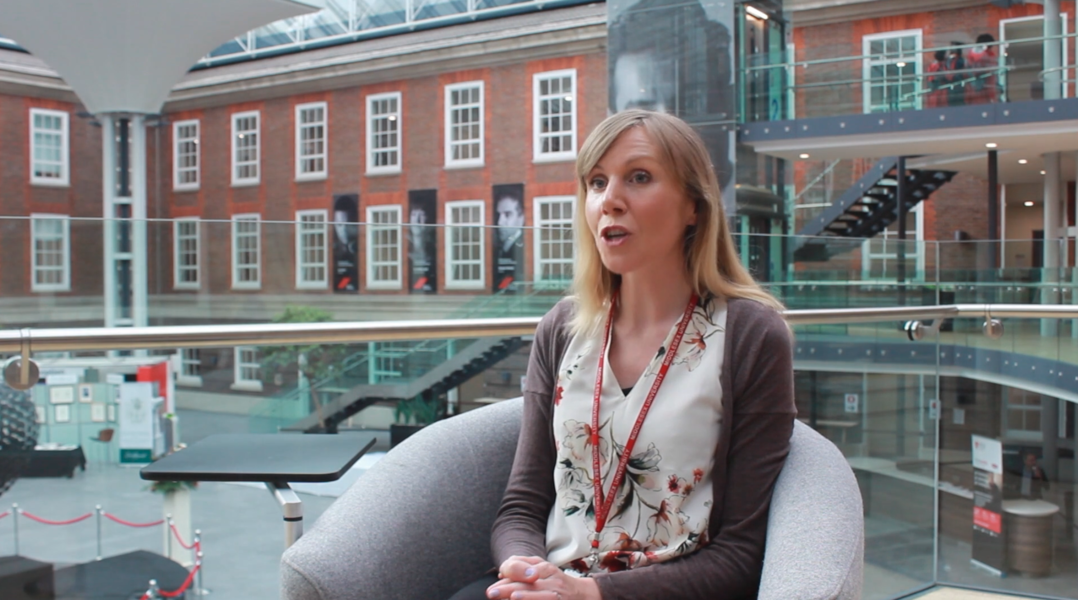In this video, Maeve discusses, What the PIPER Initiative is? Which organisations have been involved? How others can get involved? and what the benefits of the PIPER Initiative are for both industry and students alike?
The PIPER initiative (Partnership for Innovative Practitioner Engagement in Research) is a collaborative partnership between IOSH London Metropolitan Branch, Middlesex University and Greenwich University to support the OHS profession through carrying out free research and OHS studies for IOSH members.
In the latest edition of Safety Bytes we met with Maeve O’Loughlin from Middlesex University to discuss the PIPER Initiative.
The PIPER initiative (Partnership for Innovative Practitioner Engagement in Research) is a collaborative partnership between IOSH London Metropolitan Branch, Middlesex University and the University of Greenwich to support the OHS profession through carrying out free research and OHS studies for IOSH members.
What is the PIPER initiative?
Maeve: Effectively it’s a partnership, between IOSH, Middlesex University and the University of Greenwich, but actually what this is all about is providing free, cost effective research services for organisations to help them with the challenges or issues they may face in their health and safety management. The idea is that we partner Masters level research students who are undertaking their dissertation research, with an organisation, to be able to address the challenges that organisation faces.
How did PIPER come about?
Maeve: So in 2014 I met up with Nigel Burgess, former Chair of the IOSH London Metropolitan branch and Shaun Lundy from the University of Greenwich, to talk about what would be the options we could look at and any opportunities to collaborate. As a result of that, we decided that we would partner together to provide opportunities for our students to make use of their research skills in a really beneficial way for organisations.
Which organisations have been involved?
Maeve: Interestingly we really felt that we wanted to target small organisations, which might not have the resources or the financial backing, to be able to get the support they need for health and safety. We would still welcome them to be more and more involved, but what’s actually happened is its been a lot of large organisations who have been pushing improvement within their programmes that have come forward to be involved. We’ve had the likes of Mount Anvil, Crossrail, Ipsom, TfL and a multitude of others who have come forward to have projects undertaken.
How can organisations get involved?
Maeve: Every year we publicise the fact that we’re going to run a public workshop which is hosted by the IOSH London Metropolitan branch, inviting any organisations, small or large, anyone interested to come and attend the workshop. Its really informal, its really friendly and at the same time we invite our Masters level students. We effectively run a ‘speed dating’ for want of a better way of describing it, workshop. Whereby Organisations will explain their challenges, their issues, the things that they might want to have brought forward as a research project and the students have to explain their skills, their aptitudes and see if they are a good fit to take that project forward.
What are the benefits for industry?
Maeve: If companies don’t have available resources or maybe they don’t feel that they are approaching things in the best way possible, research is a really good way to try and address those things. A lot of the academics who support our student’s projects are former practitioners, as well as academics, so they are familiar with practice, they are familiar with theory and they are familiar with the empirical evidence base as to what works and what doesn’t.
Its free, its cost effective for the companies to actually have somebody do a project and it gets an outcome that’s based on evidence from research.
The whole game with research is that it has to be robust, it has to be a reliable methodology, so you can actually stand over the response and the results that come out of these projects.
Why is PIPER important?
Maeve: It shows the value of research to Health & Safety, it's something that we are passionate about, using evidence to make decisions and the idea of not just looking at best practice but using evidence based information to inform what works and what doesn’t, that’s been great.
Eager to find out more?
The next IOSH PIPER research programme for 2017 kicks of soon and if you’d like to get involved or you’re interested in coming along to the project scoping workshop on the 6th December, please email piper@ioshnetworks.co.uk or bookings@iosh.com.
‘Safety bytes’ are a series of short videos published regularly online for the health and safety industry. In this series, we talk to a variety of people working in the industry, from education providers, membership bodies and academics, through to CEOs and leaders from across the health and safety industry.
